 Miscellaneous
Miscellaneous  Miscellaneous
Miscellaneous  Animals
Animals 10 Strange Attempts to Smuggle Animals
 Travel
Travel 10 Natural Rock Formations That Will Make You Do a Double Take
 Movies and TV
Movies and TV 10 Actors Hidden in Your Favorite Movies
 Our World
Our World 10 Science Facts That Will Change How You Look at the World
 Pop Culture
Pop Culture 10 Incredible Female Comic Book Artists
 Crime
Crime 10 Terrifying Serial Killers from Centuries Ago
 Technology
Technology 10 Hilariously Over-Engineered Solutions to Simple Problems
 Miscellaneous
Miscellaneous 10 Ironic News Stories Straight out of an Alanis Morissette Song
 Politics
Politics 10 Lesser-Known Far-Right Groups of the 21st Century
 Miscellaneous
Miscellaneous 10 Undeniable Signs That People’s Views of Mushrooms Are Changing
 Animals
Animals 10 Strange Attempts to Smuggle Animals
 Travel
Travel 10 Natural Rock Formations That Will Make You Do a Double Take
Who's Behind Listverse?

Jamie Frater
Head Editor
Jamie founded Listverse due to an insatiable desire to share fascinating, obscure, and bizarre facts. He has been a guest speaker on numerous national radio and television stations and is a five time published author.
More About Us Movies and TV
Movies and TV 10 Actors Hidden in Your Favorite Movies
 Our World
Our World 10 Science Facts That Will Change How You Look at the World
 Pop Culture
Pop Culture 10 Incredible Female Comic Book Artists
 Crime
Crime 10 Terrifying Serial Killers from Centuries Ago
 Technology
Technology 10 Hilariously Over-Engineered Solutions to Simple Problems
 Miscellaneous
Miscellaneous 10 Ironic News Stories Straight out of an Alanis Morissette Song
 Politics
Politics 10 Lesser-Known Far-Right Groups of the 21st Century
10 Scientific Reasons Society Is Like It Is And Why We Can’t Fix It
Despite what the media would have you believe, we’re actually living in the most peaceful time in human history. There’s no doubt that the world is in a bit more chaos than it was, say, five years ago, but largely, it’s still way better than even fifty years ago. We’re just more connected than ever, giving us a direct glimpse into global human suffering we’ve never had before.
See Also: 10 Indications That Western Society Is Collapsing
That said, ‘more peaceful than any time in history’ isn’t really saying much, as human history has been excessively violent for the most part. We may be more civilized and peaceful than before, but there’s still a lot to be done. We still live in times of gross mass deprivation and chaos in huge swathes of the world, with millions of people going through their own unique apocalypse scenario on a daily basis. You’d think that after so many millennia of existing, we’d have figured out how to fix the worst aspects of our civilization. Clearly, we haven’t.
As it turns out, there are perfectly legit, scientific reasons for why our society – and psyche – is inherently hardwired in a way that makes it difficult to solve the larger issues.
10We’re Surprisingly Easy To Fool

A logical fallacy is one of those things that are surprisingly difficult to spot, but impossible to miss once you know what you’re looking for. From advertising to politics, we’re bombarded with logical arguments that fall apart under the slightest scrutiny. As an example, politicians around the world regularly attack whistleblowers and people putting spotlight on an issue rather than the issue itself (known as ad hominem in the logical fallacy circles). The worst part? We fall for it, as it’s not always as clearly obvious.
It’s not because we’re all are simply dumb, it’s just that logical fallacies are incredibly difficult to spot by our brains, especially the ones hidden beneath otherwise-reasonable arguments. Another reason they’re so persuasive is that they appeal to the part of the brain that already wants to be convinced to some extent. To use the previous example, someone who already thinks that whistleblowers are bad for society – the degree of their conviction notwithstanding—is more likely to discredit their information and attack their personal life than someone with a neutral or favorable stand on them.[1]
9 We’re Bad At Probability

Let’s say that an asteroid is hurtling towards Earth, and the probability of collision is one in million. That sounds like something that would make most people panic, as an asteroid flying towards Earth with any odds is a bad thing. Interestingly, though, if you raise the odds to somewhere around one in ten thousand, chances are that your panic would be similar. That’s despite the fact that the earlier odds weren’t that high, as asteroids are hurtling towards Earth with some probability all the time.
The reason that happens is because people are intuitively bad at gauging probability. If a coin lands on tails five times, most people would think that the probability of heads on the next go is higher, even if it’s 50/50 for all the throws, regardless of previous outcome.
This inability to intuitively understand probability results into larger problems. For an example, this is how politicians prop up non-issues over genuine, widespread problems and win. As long as the problem looks threatening enough, it would resonate with most of us, even if it’s statistically not that likely to happen.[2]
8 We Automatically Associate Ourselves With Groups
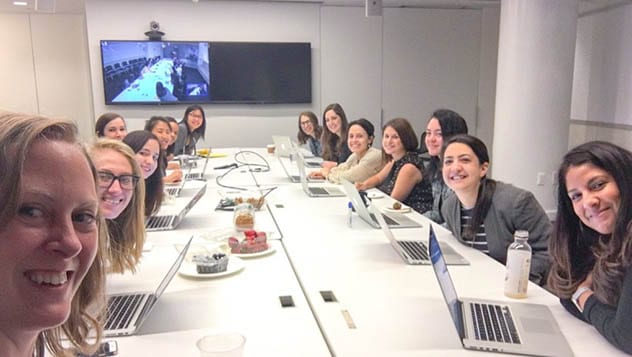
Conflict has been a part of human society for as long as we know, and most of it happens between groups. It doesn’t matter where the divisions lie – religion, country, sects, familial clans etc. – we find a way to get some people together, find common cause and fight with others doing the same. Associating with groups has been a pretty great survival strategy, too, as the strongest groups in history are the only ones that survived.
On the other hand, it’s also what causes problems like racism and religious wars. It doesn’t matter if your group is generally peaceful and awesome; someone would say that it’s the best and seek to destroy the others in its name sooner or later.
Why does this work so well every time? It’s because we’re evolutionarily trained to do that. Many studies – including ones done on babies—have proven that humans are born with an inbuilt preference for people that’re similar to us, which makes perfect sense as we’re social, group-based creatures. Research has also shown that we’re attracted to people who’re like us, which makes sure that the bloodlines don’t stray too far from our respective group. It doesn’t mean that nature is racist, it just means that societal evils like racism come from the same evolutionary mechanism that once gave us a definite advantage in hostile conditions.[3]
7 We Require Chaos And Destruction To Progress

‘Why can’t we just sit and build things instead of fighting each other’ is a sentiment almost everyone who doesn’t profit from conflict would agree with. It seems to be true, too, as we already have the tools and resources to innovate and progress without having to fight for them. Sure, there was a time when invasion and war for necessary to obtain rare resources and gain technological advances, but in a world of free global trade, that isn’t a problem anymore. So, why don’t we?
The answer is simple; we literally need war and conflict to technologically innovate. An overwhelming number of our most useful everyday tech has come from times of war. It’s not just about technology; our modern ideas of liberty, human rights, democracy and so many things we now take for granted were formulated as direct results of war. So many prosperous and technologically advanced empires in history were also coincidentally the ones with a new type of technology on the battlefield, or at least a new way to use existing technology, which carried over to civilian applications. Building new types of arrows gave way to better knowledge of aerodynamics, improving armor made us better at metal working etc.
It’s not because humans are inherently bloodthirsty. Because of our violent history, we’re able to come up with new things much more efficiently when we’re faced with conflict and existential threat. That’s not to say that peaceful times in history have been devoid of any technological innovation, though most of them were built on the heels of massive wars themselves.[4]
6 Human Memory Is Scarily Unreliable And Easy To Manipulate
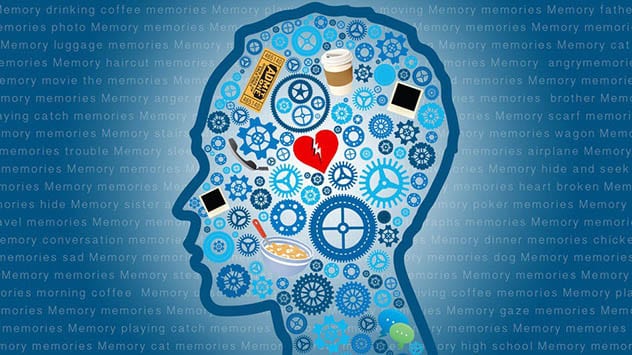
We’ve all heard about the dangers of revisionism and repeating the mistakes of history, and yet, we still do it without abandon anyway. Many countries around the world are fighting for reasons similar to those as far back as hundreds of years ago. It makes you wonder if we’re just bad at record keeping, or simply doomed to repeat our mistakes over and over again by some higher entity.
As it turns out, it’s neither of those. We’re actually pretty good at learning from our mistakes, as is clearly demonstrated by our ability to evolve. When it comes to public memory about past events, though, our memory is surprisingly shaky and easy to manipulate. Many studies have shown that as long as your argument is convincing enough, it’s quite easy to plant outright faulty memories and get away with it. Memory is also not an accurate representation of how you remember, but a jumbled-up version created by your brain based on best guesses and projections.[5]
5 Our History Is Unreliable

People think of history as facts set in stone, as how can it not be? Keeping a record of history has always been one of the most qualified jobs in almost all societies in history, and we have to say that historians have done a good job at it, too. That’s why we believe them when they say that history isn’t actually facts at all, but our best guess at what happened based on what we could find.
That’s made worse by the fact that record keeping has been limited to specific sections of societies throughout history, which means that a lot of different groups and timelines are excluded from what we know as popular history. Finding different voices and corroborating information from different sources is a big part of a historian’s jobs, though it’s not possible in more cases than you’d imagine. Huge chunks of our history – especially in the southern half of the world – are either unreliable or outright missing, along with crucial advancements in aspects like agriculture, politics, technology etc.[6]
4 Emotions Over Rationality
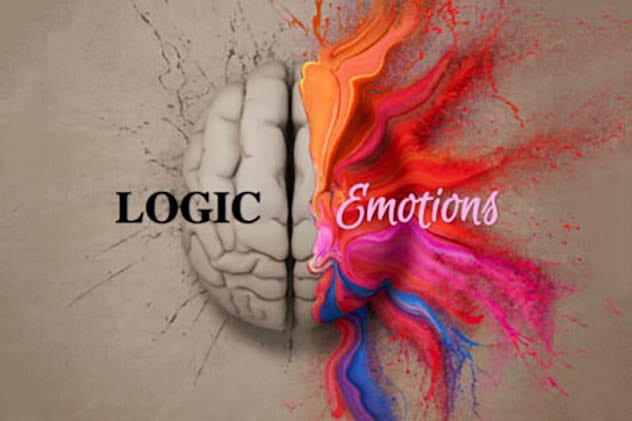
Take a look around the world, and you’d feel lucky to live in a largely peaceful country (if you live in a largely peaceful country, of course). Even today, many countries are ruled by authoritarian regimes, with curtailed freedoms and lack of fundamental rights. The worst part? Many of those regimes have widespread support from the people. Heck, some are even democracies. That’s right, much like our history, people are actually choosing obviously harmful leaders.
If you think it’s because some populations are simply too dumb to make the right decisions, that’s not just inappropriate, but also pretty inaccurate. As proven by the Second World War, a country doesn’t need to be a third world conflict zone to actively support dictators or dictatorial regimes.
The reason people still elect extremists and authoritarian rulers is that we’re not really good at listening to our rational minds. The emotional part of the brain overrides the rational part almost every time, and we’re not just talking about electing dictators. It affects the politics of functioning democracies, too. Our lack of rationality is why policy-making is more about appealing to the emotions of your voter (and donor, of course) base than implementing solutions that would actually help, even – and especially—when those two things are on conflicting sides.[7]
3 We’re Naturally Inclined To Conform
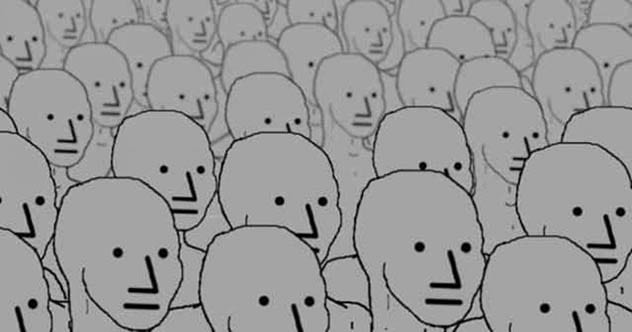
Social change – the good kind, anyway – is almost always a result of civil disobedience and social unrest. From women getting voting rights after decades of agitation in USA to the French Revolution inspiring ideas of liberty and personal freedom around the world, we owe a lot to people who didn’t just agree to societal norms of their day and decided to fight to change them. The only problem? Many of these cases were hundreds of years in the making, and only happened in the more recent chapters of history.
For the most part, people were just content with how things were, even if things get progressively worse the further back you go in history. Science backs it, too. We’d much rather conform to existing status quo for as long as we could rather than shake things up, because that’s just how we’re built. It’s evolutionarily costly to shake the existing structure of the society you’re in, which would have been important during our early days. Even those cases of unrest (and most other rebellions in history, even the failed ones) happened when things got so bad that people didn’t have any other option but to revolt, like economic stagnation and exorbitant taxes on a population already suffering from the excesses of war.[8]
2 We Don’t Trust Each Other

Even in 2019, it’s still ridiculously easy to turn people against a particular group for political reasons, and we’re not just talking about any one country here. Hate crimes and sectarian violence is on the rise (again!) around the world, even at a time when everyone is so connected with each other. Mistrust between various races and other groups made sense in, say, 1800s—when no one knew any better to not hate one another – though it certainly doesn’t anymore.
According to science, the real reason we’re still unable to trust each other is just that; we’re physically unable to trust each other. Many studies have found that people are simply not wired to trust one another, which probably has to do with the dog-eat-dog era that has been our collective history. There’s also a definite trust deficient among people around the world, and it’s on the rise in many countries including the United States. So, when economic and social conditions in a vulnerable country get worse and extremist leaders start gaining ground, it’s easy to turn that lack of trust into all-out hatred.[9]
1 More Power Is Related To Reduced Empathy
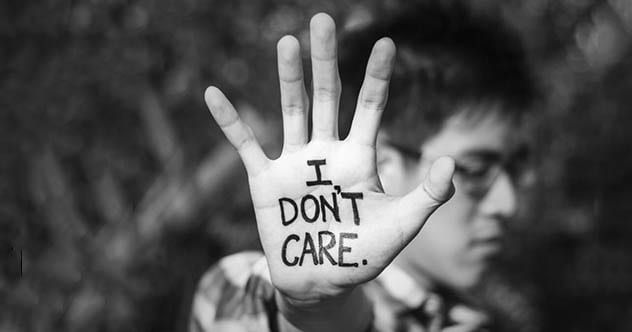
Even if things seem to be good in many parts of the world, there are still regions that are grappling with severe problems. That’s not to mention the problems that’re looming ahead for all of us, like rising sea levels and pollution. Unsurprisingly, many of these problems could be solved overnight if the richest and most powerful people around the world decided to donate even a tiny percentage of their wealth.
If you think it’s because they lack empathy, you’d be right. Not in the way that it’s only the cold ones that can be rich and powerful, but more because we all lose empathy when we gain power. It’s not just us saying it; studies prove that people become less socially aware and emotionally alert with rising social status and power level at the workplace. It’s just the way we evolved, explaining – in essence – the biggest and most ironical problem with our world; the more power you have to change the society, the less likely you are to care about actually doing it.[10]
For more lists like this, check out 10 Ridiculous Health Myths (Science Says Are Actually True), and 10 Ridiculous Myths We Believe Because Of Movies.








